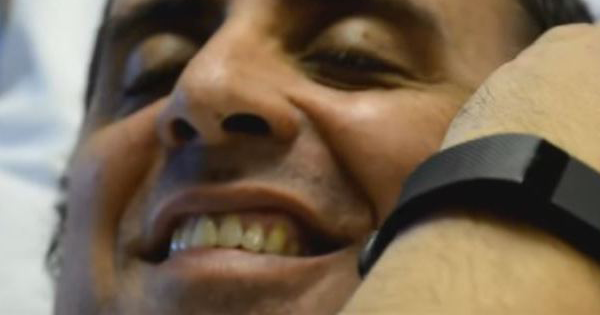Advertisement
Doctors in New Jersey were able to save a high school English teacher’s life after checking the Fitbit on his wrist.
42-year-old Jeff Bravo had no idea what had happened to him when he woke up in the emergency room of Our Lady of Lourdes Medical Center.
Even though emergency responders were able to help Bravo just in time, doctors at the hospital desperately needed to know information about his condition that they couldn’t figure out on their own.
Bravo had suffered a serious seizure, and doctors desperately needed to know what was going on with his body right before he collapsed.
That’s when they noticed the Fitbit on his wrist.
Bravo’s wife had given him the fitness tracker as a Christmas gift, so he continued to wear it just about everywhere he went.
Fitbits are designed to track everything from steps and exercise to heart rate, calories burned, and even sleep!
Because Bravo’s device was set to sync up with his cell phone, doctors were able to get the exact information they needed to treat him.
As it turns out, Bravo’s heart rate had spiked to dangerous levels just before he was rushed to the hospital, so doctors were able to use an electrical shock to return his heart rate back to normal.
Bravo’s story was so unique that it ended up being published in the Annals of Emergency Medicine.
Study author Alfred Sacchetti, MD, FACEP of Our Lady of Lourdes Medical Center in Camden, wrote:
“Not all activity trackers measure heart rates, but this is the function of most value to medical providers. Dizziness with a heart rate of 180 would be approached very differently from the same complaint with a heart rate of 30.
At present, activity trackers are not considered approved medical devices and use of their information to make medical decisions is at the clinician’s own discretion. However, the increased use of these devices has the potential to provide emergency physicians with objective clinical information prior to the patient’s arrival at the emergency department.”




